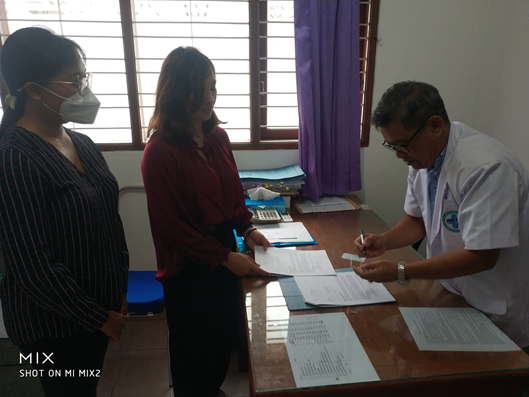Veterinary Teaching Hospital Faculty of Veterinary Medicine Udayana University Extends International Cooperation With Animal Australia
The COVID-19 pandemic is still ongoing and is drastically affecting the Balinese economy, which relies heavily on tourism. Many people are financially affected including local residents and expatriates, who no longer have the ability to provide veterinary care for abandoned and rescued animals. During the COVID-19 pandemic, many beloved pets were abandoned by their owners, some were thrown away and even a few were injured in accidents. In order to handle medical emergencies in abandoned animals, the Udayana Veterinary Teaching Hospital (VTH) in collaboration with Animal Australia continues international service in the form of emergency handling of animals at high risk of medical emergencies for free. In the statement of Cooperation between parties which from Animal Australia was signed by Glenys Oogjes as CEO of Animals Australia, and Prof. Dr.Drh. I Ketut Puja, M.Kes As the director of Udayana Animal Hospital.

Drh Sasadara, M.Si as the representative of Animal Australia Bali said this collaboration is a form of Animal Australia's concern for animal welfare in Bali. Animal Australia remains committed to assisting the Faculty of Veterinary Medicine in participating in animal welfare campaigns and expanding UNUD's Veterinary Teaching Hospital program to provide free emergency veterinary care for at-risk animals. This year's program also added a round-the-clock emergency care program for the poor pet owner.
Prof, Dr. Drh I Ketut Puja, M.Kes, director of Udayana VTH expressed his gratitude because his efforts to extend the international service program were well received by Animal Australia. This program starts from July 1, 2022 until June 30, 2023. In this service program, Prof. Puja further said that Udayana VTH will help the community who keep animals affected by COVID-19 to get services, both basic and advanced services for free. at the Udayana Hospital, but still based on medical emergencies. Prof. Puja hopes that affected people who have pets in medical emergencies can get free services. Besides that, a program to expand access to animal health is also designed for the poor in the village. For people who need this service, they can contact the admin of Udayana VTH every day. Prof. Puja also explained that although this service is provided free of charge, VTH does not differentiate between free and paid services, VTH still provides quality and professional services.




